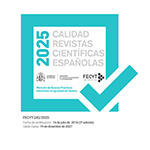Génesis política y nuevas coberturas de la Directiva revisada sobre comités de empresa europeos
Resumen
La definición de un cuerpo de derechos de participación para los trabajadores de empresas transnacionales constituye uno de los retos de mayor magnitud a los que se ha enfrentado la construcción del edificio de las relaciones laborales europeas. La Directiva 94/45/CE de 22 de septiembre de 1994 abrió el camino para la constitución de más de 800 comités de empresa europeos en empresas con actividades en más de un país miembro de la Unión Europea. Una vez testada su validez como impulsora de prácticas de información y consulta a los trabajadores y detectadas también sus limitaciones, se inicia un complejo debate político que ha culminado con la revisión de la normativa a comienzos de 2009, a través de la nueva Directiva 2009/38/CE. El objetivo de este artículo es examinar las aportaciones del proceso de revisión de la exitosa Directiva 94/45/CE, a la cual sustituye y analizar los intercambios protagonizados por las instituciones europeas, los socios nacionales y los agentes sociales, a lo largo del proceso político que ha conducido a la actual regulación. El interés de este ejercicio trasciende el estudio de las relaciones laborales europeas a escala de empresa. En primer lugar, porque las tensiones que se encuentran detrás del proceso de definición normativa que conduce a la Directiva 2009/38/CE son similares a las que bloquean o impulsan procesos distintos a otros niveles de las relaciones laborales europeas. Y en segundo lugar, porque este análisis arroja luz sobre la complejidad de los mecanismos de toma de decisiones en el contexto de la Europa Ampliada.Descargas
##plugins.generic.pfl.publicationFactsTitle##
##plugins.generic.pfl.reviewerProfiles## N/D
##plugins.generic.pfl.authorStatements##
Indexado: {$indexList}
-
##plugins.generic.pfl.indexedList##
- ##plugins.generic.pfl.academicSociety##
- N/D
- Editora:
- Ediciones Complutense
Descarga artículo
Licencia
La revista Cuadernos de Relaciones Laborales, para fomentar el intercambio global del conocimiento, facilita el acceso sin restricciones a sus contenidos desde el momento de su publicación en la presente edición electrónica, y por eso es una revista de acceso abierto. Los originales publicados en esta revista son propiedad de la Universidad Complutense de Madrid y es obligatorio citar su procedencia en cualquier reproducción total o parcial. Todos los contenidos se distribuyen bajo una licencia de uso y distribución Creative Commons Reconocimiento 4.0 (CC BY 4.0). Esta circunstancia ha de hacerse constar expresamente de esta forma cuando sea necesario. Puede consultar la versión informativa y el texto legal de la licencia.











